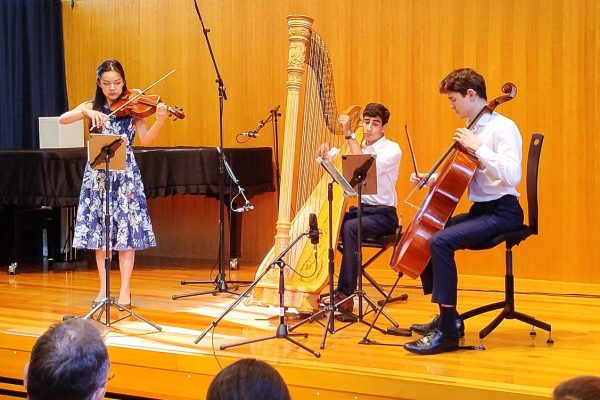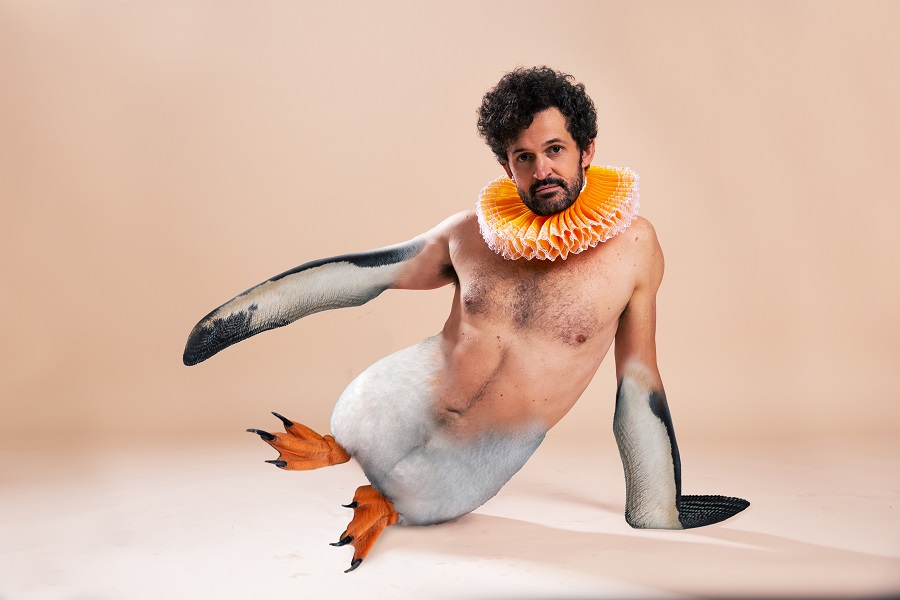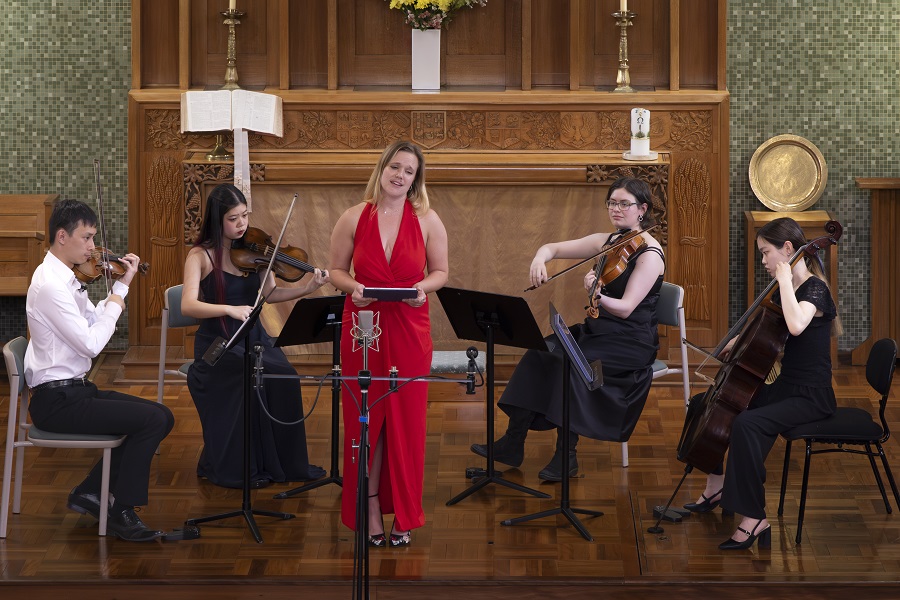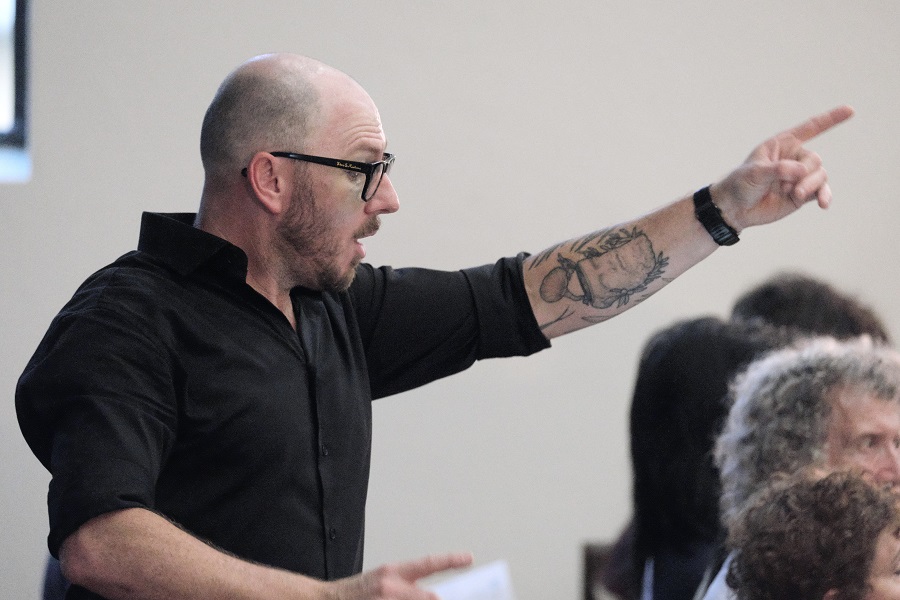
Music / Birth & Rebirth, James Monro, Sarah Zhu and Paul Nicolaou. At Wesley Music Centre, April 14. Reviewed by ROB KENNEDY.
With music from the Renaissance to the present day, three bright stars in the musical firmament offered a concert of chamber music that highlighted their prodigious talent.
As part of the Emerging Artist Concerts Series, run by Inspire Music Australia, James Monro, cello; Sarah Zhu, viola, and Paul Nicolaou, harp, have performed this program of music at St Jude’s Anglican Church in Bowral and at Wollongong Art Gallery.
They began with a work titled Nascence, by American composer Austin Wintory, for viola, cello and harp. The trio performed this short tonal work that held a lot of emotional content. It was adapted from one of the composer’s video game compositions.
Elena Kats-Chernin’s Blue Silence for the trio followed. It’s dedicated to anyone suffering from schizophrenia. It’s a reflective work that holds so much beauty. The playing was as sensitive as the music itself.
Charles Tessier’s Quand le flambeau du monde (When the torch of the world), for the trio moved the sound back in time 500 years. But that didn’t mean they moved away from the beauty of sound, only the form more noticeable as it held the work together through call and response. A little charmer that fitted the feel of the other works.
James Monro got to show off his talent as a composer and performer in his Saturated Reflection, for viola, cello and harp. It is a riveting piece. Monro says: “It encapsulates the workings of the unconscious mind, mapping the processes of the sleeping brain to a musical structure.”
A tonal and melodic piece that used a lot of pizzicato and percussion tapping on the instruments to great effect. A sweet work with rich harmonies and delicate lines of harmonics on the cello. It was dream-like, ornamental and gentle.
Inspire Music Australia who organised this concert offers young Australian classical and jazz musicians much-needed performance opportunities through community concerts. They are a not-for-profit organisation and have produced more than 50 free concerts since 2020.
Kaddisch from Deux mélodies hébraïques, for viola and harp by Maurice Ravel came next. This sparse work, prayer-like, sang out through the finest of touches. Delicately plucked harp chords under a floating viola tune was played so sensitively.
Paul Hindemith’s Lied: Ihr Freunde, hänget, and Sehr langsam from Sonate für Harfe, followed. The third movement only, spoke of death and the events around a funeral. Like gossamer, it hung on the air as an unsentimental tune full of colour and played with an impassioned touch.
Then, Oblivion, for cello and harp by Astor Piazzola. This arrangement sang as sweetly as it does on the bandoneon. The yearning cello sung out this passionate tune with harp holding it together.
Composed for this musical format and for this concert series, Paul Nicolaou’s, Of Light, Divided, for viola, cello and harp ended the program. A conceptual work that explored light, colour and motion. It shimmered, and melted through gorgeous tonalities and reflected the sentiment of the whole concert, beauty.
To the full house, they encored with a happy, bouncy tune, Elena Kats-Chernin’s Dance of the Paper Umbrellas.
Who can be trusted?
In a world of spin and confusion, there’s never been a more important time to support independent journalism in Canberra.
If you trust our work online and want to enforce the power of independent voices, I invite you to make a small contribution.
Every dollar of support is invested back into our journalism to help keep citynews.com.au strong and free.
Thank you,
Ian Meikle, editor




Leave a Reply